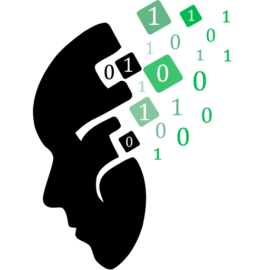FaceSwap
FaceSwap is an open-source AI software for creating deepfake videos and images by replacing one person's face with another's using deep learning technology.
What is FaceSwap?
FaceSwap is an open-source AI software for creating deepfake videos and images. It uses deep learning technology to replace one person's face with another's in videos or images. The software supports multiple operating systems, including Windows, macOS, and Linux, and can run on both CPU and GPU. It is maintained and updated by an active community, offering detailed installation and usage guides and tutorials. FaceSwap emphasizes its free and open-source nature, encouraging users to use it within the bounds of legal and ethical guidelines.
Main Features of FaceSwap
- Face Detection and Extraction: The software can detect and extract faces from videos or images.
- Face Replacement: Replace one person's face with another's in videos, achieving "face swapping."
- Model Training: Users can train the software to learn specific facial features, improving the accuracy and naturalness of face swaps.
- Cross-Platform Support: The software supports Windows, macOS, and Linux operating systems, making it usable in different computing environments.
- GPU Acceleration: FaceSwap supports GPU acceleration, significantly improving processing speed and efficiency.
FaceSwap Project Website
- Project Website: faceswap.dev
- GitHub Repository: https://github.com/deepfakes/faceswap
Applications of FaceSwap
- Film and Video Production: In post-production, FaceSwap technology can replace or enhance actors' performances, especially in effects-heavy scenes.
- Entertainment and Social Media: Users can share fun face-swapping videos on social media as a form of entertainment.
- Education and Training: In the educational field, FaceSwap can create simulated scenarios to help students better understand complex concepts or skills.
- Game Development: Game developers can use FaceSwap technology to offer personalized gaming experiences, such as applying players' facial features to game characters.
- Virtual Reality (VR) and Augmented Reality (AR): In VR or AR applications, FaceSwap can create more immersive experiences, such as simulating users' facial expressions in virtual environments.
Features & Capabilities
What You Can Do
Face Detection
Face Extraction
Face Replacement
Model Training
Categories
AI
Deepfake
Face Swapping
Open Source
Video Editing
Image Editing
Deep Learning
Cross-Platform
GPU Acceleration
Community-Driven
Example Uses
- Film and Video Production
- Entertainment and Social Media
- Education and Training
- Game Development
- Virtual Reality (VR) and Augmented Reality (AR)
Getting Started
Pricing
free
Requirements
- Windows, macOS, or Linux
- Python
- TensorFlow
- Keras
- GPU (optional)
Screenshots & Images
Primary Screenshot

Additional Images



Stats
213
Views
0
Favorites
